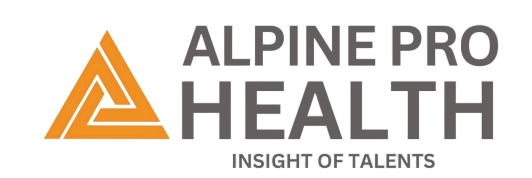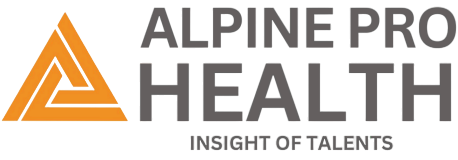Medical coding has long been a foundational component of the healthcare revenue cycle. However, as the healthcare industry continues to evolve with digital transformation, artificial intelligence, and increased regulatory scrutiny, many aspiring professionals and healthcare organizations are asking: Does medical coding have a future? The short answer is absolutely yes.
Let’s explore why medical coding is not only here to stay but also poised for significant growth in the coming years.
Understanding the Role of Medical Coding
The process involves translating patient visits, diagnoses, procedures, and treatments into universally recognized alphanumeric codes like ICD-10, CPT, and HCPCS. These standardized codes play a crucial role in streamlining billing, ensuring accurate reimbursements, and maintaining regulatory compliance.
- Securing precise billing and payments from insurance companies
- Supporting data analytics and population health management
- Maintaining regulatory compliance and audit readiness
Coders work closely with physicians, billing teams, and compliance officers to ensure that documentation is accurate, complete, and supports medical necessity.
Why Medical Coding Will Continue to Grow?
1. Rising Demand for Healthcare Services
With an aging population and the increasing prevalence of chronic diseases, healthcare services are expected to rise sharply in the next decade. According to the U.S. Bureau of Labor Statistics (BLS), employment for medical records and health information specialists is projected to grow 8% from 2022 to 2032, faster than the average for all occupations.
As the volume of patient encounters grows, so does the need for skilled medical coders who can process claims efficiently and accurately.
2. Global Shift Toward Value-Based Care
The healthcare industry is moving away from volume-based models (fee-for-service) and toward value-based care, where providers are reimbursed based on outcomes and quality metrics. This model heavily relies on accurate HCC coding to assess patient risk and ensure proper reimbursement.
Coders are playing a more strategic role in value-based contracts by ensuring:
- Proper Risk Adjustment
- HCC recapture
- Coding for social determinants of health (SDOH)
- Identifying documentation gaps
This shift adds more importance to accurate medical coding in both inpatient and outpatient settings.
3. Technological Advancements and AI Integration
Rather than replacing coders, AI and automation tools are augmenting the profession. Technologies like Natural Language Processing and Computer-Assisted Coding are increasing coding speed and accuracy, especially in high-volume environments.
Skilled coders who can work alongside AI tools are in high demand. These professionals are needed to:
- Validate machine-generated codes
- Interpret complex medical notes
- Ensure compliance with payer-specific requirements
AI is creating a hybrid workforce model where human expertise complements automation, leading to higher efficiency and job security.
4. Medical Coding Career Diversification
The role of medical coders is no longer limited to basic coding tasks. There are several career paths emerging in the field:
- Risk Adjustment Auditor
- CDI Specialist
- Revenue Cycle Analyst
- Coding Quality Auditor
- Medical Coding Educator or Trainer
- Compliance Officer
As coders upskill in areas like auditing, analytics, and compliance, they become indispensable assets to healthcare organizations and payers.
5. Remote Work and Global Outsourcing
Medical coding is among the few healthcare jobs that can be done 100% remotely. Post-pandemic, remote and hybrid coding jobs have surged in popularity. This trend benefits:
- Experienced professionals seeking work-life balance
- Healthcare companies outsourcing coding to certified vendors in countries like India and the Philippines
Outsourcing has also led to the rise of coding companies and RCM service providers that offer end-to-end solutions globally. As demand for coding increases, these companies are continuously hiring and training skilled coders.
Future Trends in Medical Coding
1. ICD-11 Adoption
The World Health Organization (WHO) released ICD-11, an updated classification system offering more granular data and interoperability with electronic health records (EHRs). While the U.S. has yet to adopt ICD-11, preparations are underway, and coders will need to upskill accordingly.
2. Integration with Data Analytics and AI
Medical coders will increasingly collaborate with data science teams to:
- Extract clinical insights from coded data
- Support predictive analytics
- Drive revenue integrity audits
Being familiar with data visualization tools and healthcare informatics will add a competitive edge to a coder’s resume.
3. Focus on Preventive and Home-Based Care
With the rise of telehealth, remote patient monitoring, and home-based care models, coders will need to stay updated on coding guidelines that support non-traditional care settings.
4. Increased Regulatory Scrutiny
CMS and private payers are ramping up audits like RADV (Risk Adjustment Data Validation) and HEDIS compliance checks. Coders must stay compliant with changing rules and help organizations reduce the risk of penalties from overcoding or undercoding.
Challenges Facing the Profession
While the scope of medical coding is promising, the industry does face some challenges:
- Constantly changing coding guidelines and payer rules
- Risk of burnout due to production targets
- Need for continual upskilling and certification renewal
- Competition from AI tools and offshore outsourcing
However, coders who proactively invest in professional development and technology training can turn these challenges into opportunities.
Steps to Prepare for a Successful Career in Medical Coding
If you’re considering a career in this field, here are key steps:
- Earn a recognized certification such as CPC (AAPC), CCS (AHIMA), or CRC for risk adjustment coding.
- Get hands-on experience with EHR platforms such as Epic, Cerner, or eClinicalWorks.
- Understand medical terminology, anatomy, and pharmacology.
- Stay updated with CMS guidelines, payer bulletins, and coding updates.
- Leverage technology gets familiar with AI-assisted coding tools, Excel, and data visualization platforms.
Final Thoughts:
Medical coding is undergoing a transformation but it is far from becoming obsolete. In fact, the scope of medical coding is expanding into new domains of analytics, AI collaboration, compliance, and risk management. Coders who are adaptable, tech-savvy, and committed to continuous learning will not only survive but thrive in this evolving landscape.As the healthcare ecosystem becomes more complex, accurate medical coding will remain a critical driver of financial health, compliance, and patient outcomes. Whether you’re new or experienced, medical coding offers significant potential for the future.


